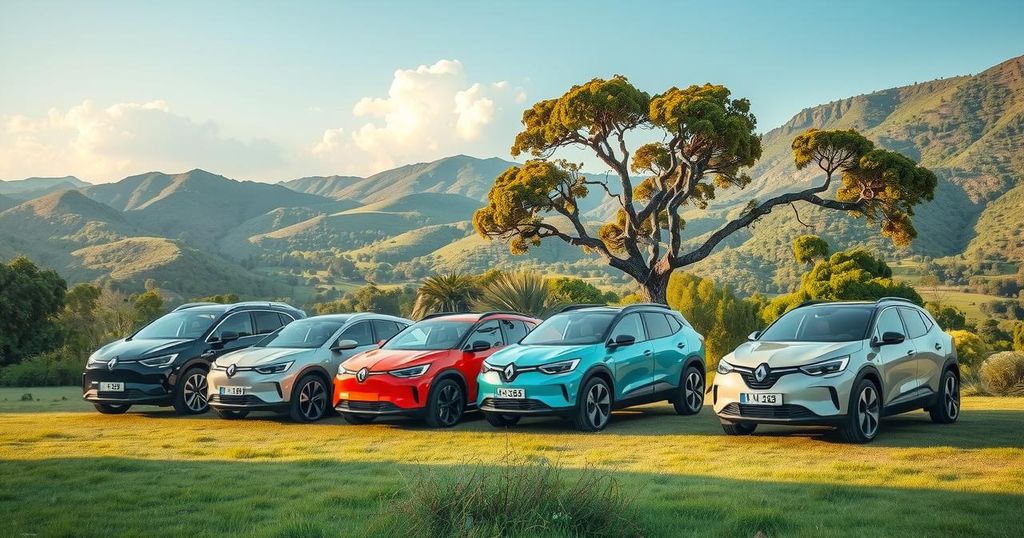Dodai: Ethiopia’s Fastest-Growing Electric Vehicle Maker
Dodai, a startup founded by Japanese entrepreneur Yuma Sasaki, has rapidly become Ethiopia’s most successful electric vehicle maker, selling 850 battery-powered motorcycles within its first year. The partnership with Ethiopian Investment Holdings to develop battery swapping stations could enhance accessibility, despite existing regulatory hurdles. By utilizing lithium-ion batteries and supporting businesses, Dodai positions itself as a leader in the East African EV market.
In energy-challenged Ethiopia, where electricity access is limited, Dodai has emerged as the nation’s fastest-growing electric vehicle (EV) manufacturer within a year of its inception. The startup, founded by Japanese entrepreneur Yuma Sasaki, has sold 850 battery-powered motorcycles, catering particularly to delivery businesses that benefit from the two-wheelers’ capability to travel 150 kilometers on a single charge.
Dodai’s rapid success has attracted government attention, with Ethiopian Investment Holdings planning to establish 300 battery swapping stations to improve EV accessibility. This infrastructure is designed to counteract challenges posed by unstable electricity supply and insufficient charging facilities throughout the country, further facilitating the adoption of electric vehicles.
The partnership with the sovereign wealth fund is a significant endorsement, according to Warren Ondanje, managing director of the Africa E-Mobility Alliance. He emphasized that government support is becoming increasingly crucial for enterprises like Dodai, highlighting the partnership’s rarity and significance in promoting the EV sector.
Founded in 2022, Dodai has quickly become a popular choice for businesses. For instance, Sheger, a wedding store in Addis Ababa, benefited financially from transitioning to Dodai bikes, replacing fossil-fueled alternatives and significantly reducing costs related to maintenance and fuel.
Sold at $1,800 each, Dodai’s bikes are $500 pricier than competitors. Yet, small and large businesses, including the Ethiopian Postal Service, have taken an interest, making Dodai their primary supplier prior to the general launch for public sales. The vehicles’ advantage lies in their lithium-ion batteries, favored over lead-acid batteries used by competitors.
To address the regulatory hurdles related to motorcycle registrations, which can take considerable time, Dodai partnered with Beatrix, a registered GPS provider. This collaboration enables quicker installation of mandatory tracking systems. Sasaki believes this strategic approach has given Dodai a decisive advantage in the EV bike market, claiming, “We have a 100% share of EV bikes with number plates.”
Nevertheless, growth is hampered by regulatory challenges and customs delays, with Sasaki estimating that Dodai could have introduced up to 5,000 bikes under a more conducive environment. Additionally, the difficulty in obtaining registration numbers deters financial institutions from extending loans, limiting options for independent gig workers.
Experts project that the battery swapping model will significantly address charging issues, enhancing operational efficiency for riders. The alliance with Ethiopian Investment Holdings is believed to streamline some regulatory challenges, facilitating a greater acceptance of electric motorcycles—a category that has faced previous prohibitions.
The collaboration not only enhances operational strategy but allows Dodai to manage battery swapping stations while benefiting from the backing of Ethiopian Investment Holdings, which will supply power and land. This model has found success in other African nations and could reduce the initial e-motorbike purchasing costs by up to 50%, according to Sasaki.
In terms of funding, Dodai has secured $7 million from Japanese investors and aims to raise an additional $10 million for its battery swapping initiative. Sasaki selected long-term investors, appreciating their understanding of Africa’s unique business challenges, particularly concerning regulatory changes and infrastructure.
With considerable investment necessary for the battery swapping service, Dodai is preparing for the launch of 100 stations this year while maintaining its original fixed battery model. Sasaki envisions a market segmentation where delivery riders favor battery swapping, while regular commuters may lean towards fixed batteries, allowing Dodai to adapt its offerings to meet customer preferences and evolving market conditions.
Dodai has quickly established itself as Ethiopia’s leading electric vehicle manufacturer by leveraging strategic partnerships, innovative battery technology, and a strong focus on customer needs. Despite regulatory challenges and supply chain issues, the company’s growth trajectory appears promising, bolstered by government support and an evolving infrastructure. By integrating battery swapping and maintaining its fixed battery option, Dodai is likely to meet diverse market demands while solidifying its leadership position in the EV sector.
Original Source: restofworld.org




Post Comment